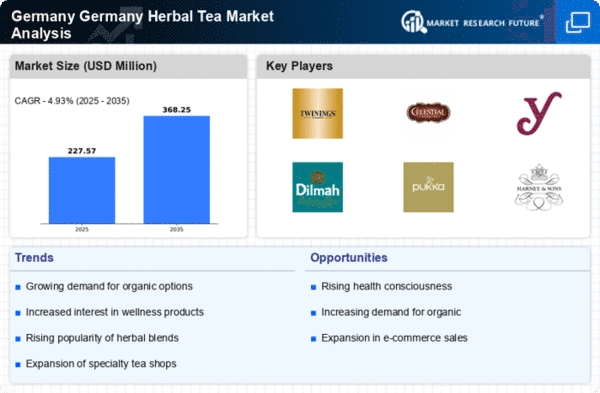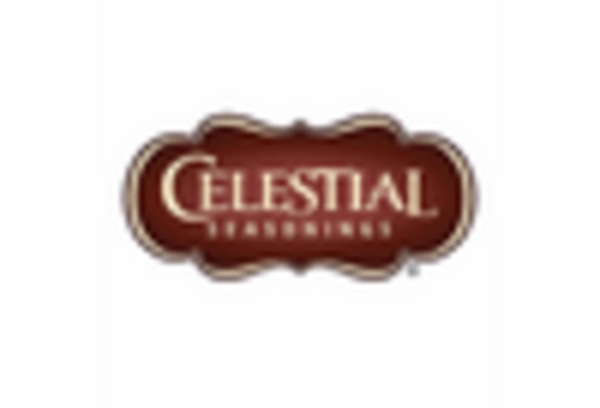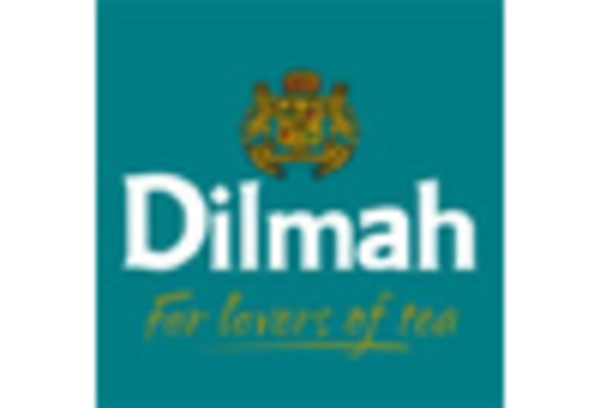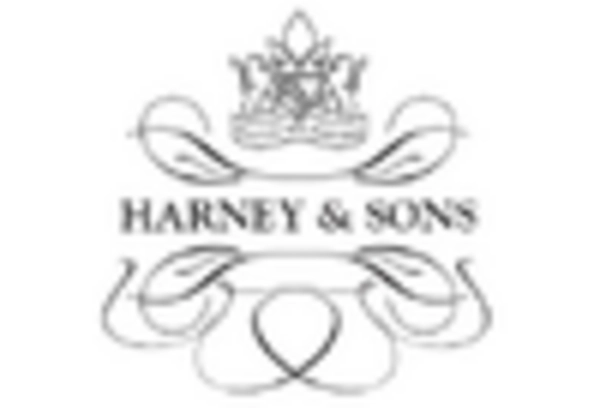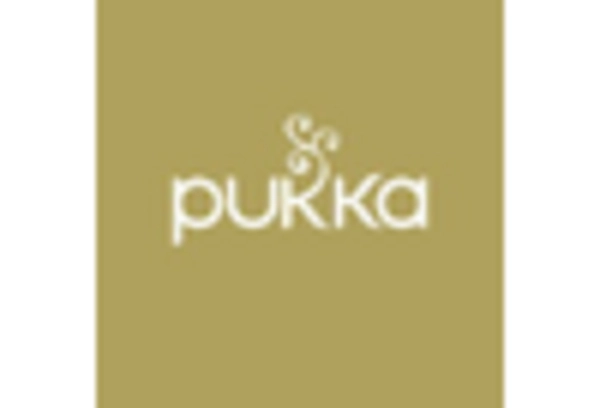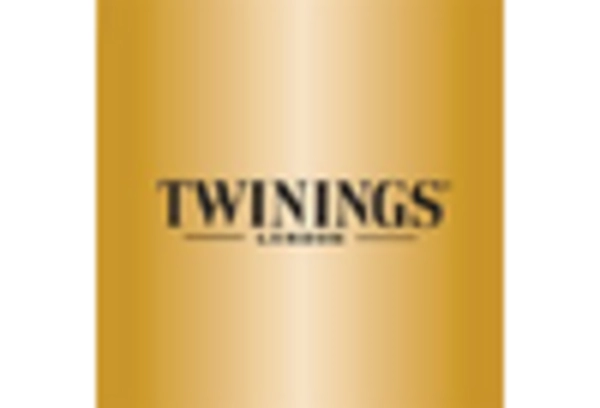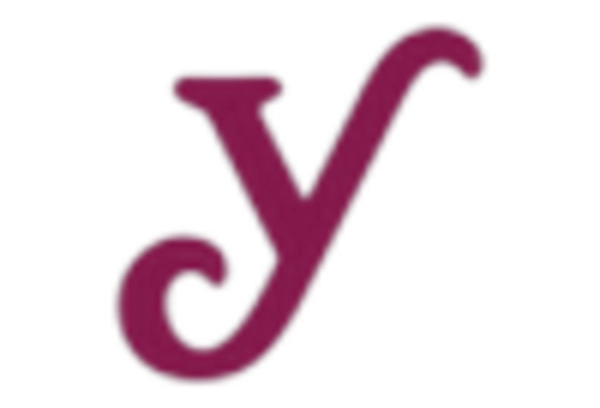Expansion of Retail Channels
The herbal tea market in Germany is benefiting from the expansion of retail channels, which enhances accessibility for consumers. The proliferation of specialty tea shops, health food stores, and online platforms has made it easier for consumers to discover and purchase a wide variety of herbal teas. This diversification of retail options is crucial, as it caters to the growing demand for unique and high-quality products. Recent statistics indicate that online sales of herbal teas have surged by approximately 20% in the last year, reflecting a shift in consumer shopping habits. As more retailers embrace e-commerce and innovative marketing strategies, the herbal tea market is likely to see continued growth, driven by increased consumer engagement and convenience.
Rising Demand for Natural Remedies
The herbal tea market in Germany experiences a notable increase in demand for natural remedies, as consumers increasingly seek alternatives to conventional pharmaceuticals. This trend is driven by a growing awareness of the potential health benefits associated with herbal teas, such as improved digestion and enhanced immunity. According to recent data, the market for herbal teas is projected to grow at a CAGR of approximately 6.5% over the next five years. This shift towards natural solutions reflects a broader societal movement towards holistic health, positioning the herbal tea market as a key player in the wellness industry. As consumers prioritize self-care and preventive health measures, the herbal tea market is likely to benefit from this evolving mindset, further solidifying its role in the health and wellness sector.
Sustainability and Ethical Sourcing
The herbal tea market in Germany is increasingly influenced by consumer preferences for sustainability and ethical sourcing practices. As awareness of environmental issues grows, consumers are more inclined to choose products that align with their values. This trend is evident in the rising demand for organic and sustainably sourced herbal teas, which are perceived as healthier and more environmentally friendly options. Market data suggests that sales of organic herbal teas have increased by over 15% in the past year, indicating a strong consumer preference for products that support sustainable agriculture. This focus on sustainability not only enhances the appeal of herbal teas but also encourages brands to adopt responsible sourcing practices, thereby fostering a more ethical herbal tea market.
Cultural Shift Towards Tea Consumption
In Germany, there is a cultural shift towards increased tea consumption, which positively impacts the herbal tea market. Traditionally dominated by coffee, the beverage landscape is evolving as consumers explore diverse options, including herbal teas. This shift is influenced by a growing appreciation for the sensory experience of tea, as well as its perceived health benefits. Recent surveys indicate that approximately 30% of German consumers now regularly consume herbal tea, reflecting a significant change in beverage preferences. This cultural transformation not only broadens the consumer base for herbal teas but also encourages innovation within the market, as brands introduce new flavors and blends to cater to evolving tastes. The herbal tea market is thus positioned to thrive amidst this changing cultural landscape.
Increased Interest in Functional Beverages
The herbal tea market in Germany is witnessing a surge in interest surrounding functional beverages, which are perceived as products that offer specific health benefits beyond basic nutrition. This trend is particularly relevant as consumers become more health-conscious and seek beverages that can support their overall well-being. Herbal teas, often infused with ingredients known for their therapeutic properties, align well with this demand. Market analysis indicates that functional beverages, including herbal teas, are expected to capture a larger share of the beverage market, with an anticipated growth rate of 7% annually. This shift towards functional options positions the herbal tea market as a vital component of the broader beverage landscape, appealing to consumers who prioritize health-enhancing products.


